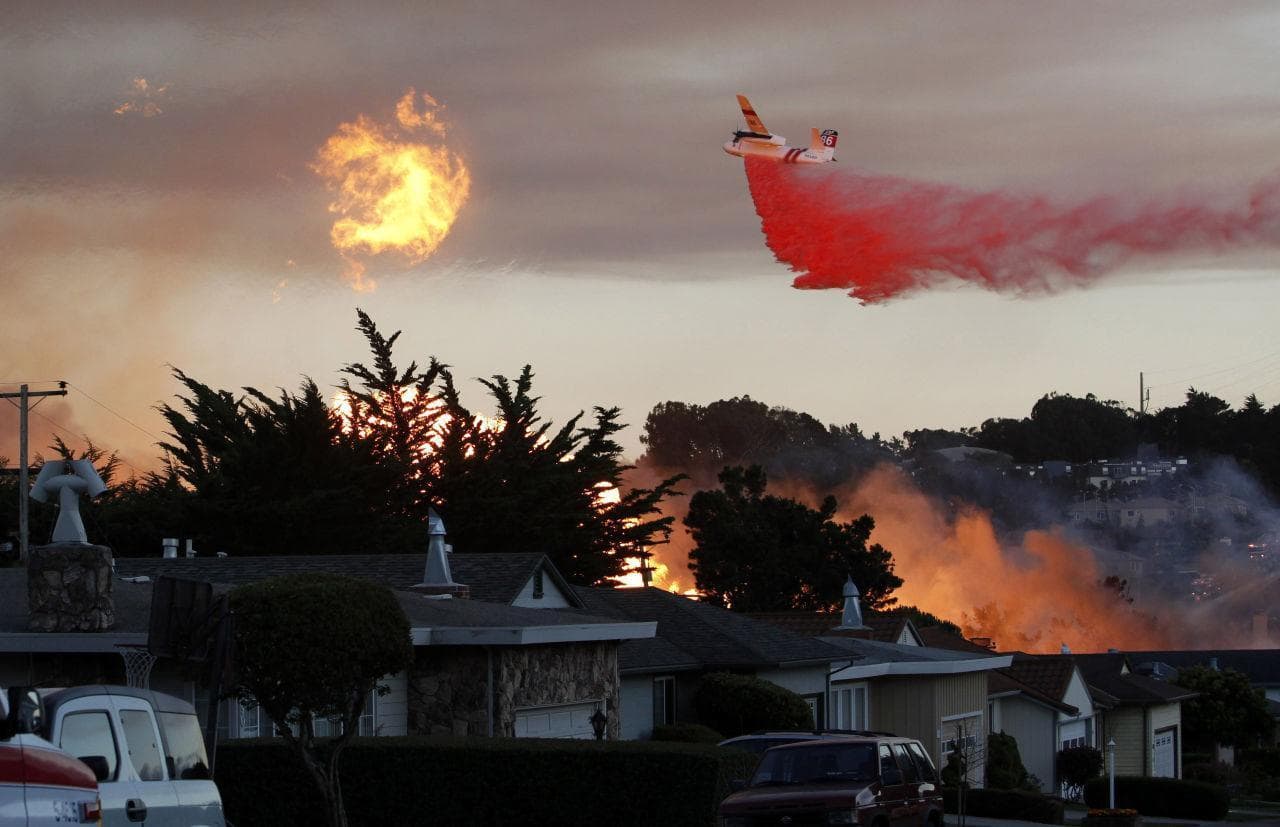Advertisement
Debate Heats Up Over Plans For 5-Mile Natural Gas Pipeline In West Roxbury
ResumeThis area's increasing reliance on natural gas for heat and energy is fueling an intense debate about its environmental impact, the rights of property owners and safety.
The latest battle is the construction of a 5-mile-long natural gas pipeline through West Roxbury and Dedham. Following a ruling by a federal judge, construction could begin as early as Monday. And some home and business owners face losing their property to eminent domain.
Why Does National Grid Want The Pipeline?
According to National Grid, the energy company has simple reasons for wanting the new pipeline.
"We need more gas, and we need to ensure the reliability of service to the West Roxbury area," said John Stavrakas, director of project development for National Grid.
The company wants the short pipeline, known as a Lateral, to be built as part of an expansion of an 1,100-mile transmission line that snakes through four states. The lateral connects in Westwood. It will go through Dedham and into West Roxbury.
"The West Roxbury Lateral [Pipeline] is going to serve Boston," Stavrakas said. "So any of the gas flowing through that pipe is going to flow into Boston."
When finished next year, it will carry 100 million cubic feet of natural gas per day into National Grid's network of local distribution pipes, serving the heating needs of Boston-area customers.
"If we didn't get this gas, we'd have a supply shortage for our existing customers due to the decline in supplies from the Canadian Maritimes," Stavrakas said. "Plus, we would no longer be able to connect new customers who are seeking gas service from our system."
As temperatures drop and days become shorter, demand for natural gas soars. At the same time, space on existing pipelines in Massachusetts can grow scarce, prices for electricity generated by gas can spike, and pressure in the pipes — needed to push the fuel through the tubes — can fall.
Stavrakas said winter creates problems for gas distribution companies like National Grid.
"So that can be a few days, that can be a couple of weeks, but those pressure concerns are an operating problem when you need the gas the most: during the peak demand periods of the winter," he said.
Why Environmentalists And Others Oppose The Pipeline
In July, environmentalists, state and local elected officials and community activists rallied at a Dedham soccer field. The grassroots pipeline opponents said the West Roxbury Lateral Pipeline is a permanent solution to a temporary, seasonal problem. They claimed the gas from fracking fields isn't needed, that there are cheaper, environmentally friendlier alternatives. And, they said, the new high pressure pipeline is dangerous.
"Pipelines of that kind are meant for secluded or rural areas. They're not meant for urban areas like this," said Paul Horn, a resident of West Roxbury. "The pipeline would run right through this neighborhood up Washington Street through Grove Street and stop in front of the [West] Roxbury quarry, where active blasting still takes place. This is crazy."
Operators of the West Roxbury quarry have been blasting rock for 150 years. When dynamite charges go off, houses shake. But National Grid's Stavrakas said it's not a problem for pipelines.
"As a matter of fact, National Grid has been operating gas distribution pipeline in those surrounding streets for a century without any incident to blasting going on," he said.
A new state law now requires gas companies to monitor seismic activity near pipelines. But opponents said National Grid's distribution pipes, buried under city streets, are low pressure — 22 pounds per square inch. The new pipeline in West Roxbury, across the street from the the quarry, will be 750 pounds per square inch.
"I'm on the section of E Street," said Virginia Hickey, of Dedham. "The pipeline is going directly in front of my house — 10 feet from my front door."
She believes the planned pipeline is too close for comfort.
"I got a look at a photo on the Internet of San Bruno, California, in a residential area if a pipeline like that explodes," she said.
Five years ago this month, a natural gas pipeline in a suburb south of San Francisco ruptured and exploded, sending a wall of fire a 1,000 feet into the air. The explosion left a crater 40 feet deep. Thirty-eight homes were destroyed. Eight people died.

According to a report prepared for Massachusetts U.S. Sen. Edward Markey, in a 10-year period ending in 2012, there were 250 gas pipeline explosions in the U.S. They killed 116 people.
In the same period, in Massachusetts, there were 23 pipeline incidents. Two children died. And a year ago in April, disaster struck close to home when an explosion ripped apart a triple-decker home in Dorchester. Twelve people were injured.
Of course, natural gas is volatile and can be dangerous. But, the company that's building and will maintain the new pipeline into West Roxbury said it will be safe.
"The project facilities are designed and will be constructed, operated and maintained to meet and exceed all federal and state standards," said Marylee Hanley, a spokeswoman for Texas-based Spectra Energy.
Opponents of the West Roxbury pipeline may have exhausted their legal options. A federal judge said federal regulators have ultimate authority, and Spectra can proceed with plans to take land in the neighborhood by eminent domain. Hanley said the pipeline company is ready to negotiate with homeowners.
"Spectra Energy's negotiations with landowners is held confidential. We don't discuss those negotiations publicly," she said.
Protests over this small pipeline project highlight the much bigger question of just how much natural gas is needed to meet the region's energy demands.
Next month, state Attorney General Maura Healey will issue a report that tries to answer that question. In the balance are billions of dollars for the construction of proposed natural gas pipelines, New England's energy mix of fossil fuel and renewables far into the future and the fate of the region's climate change goals.
This segment aired on September 21, 2015.
